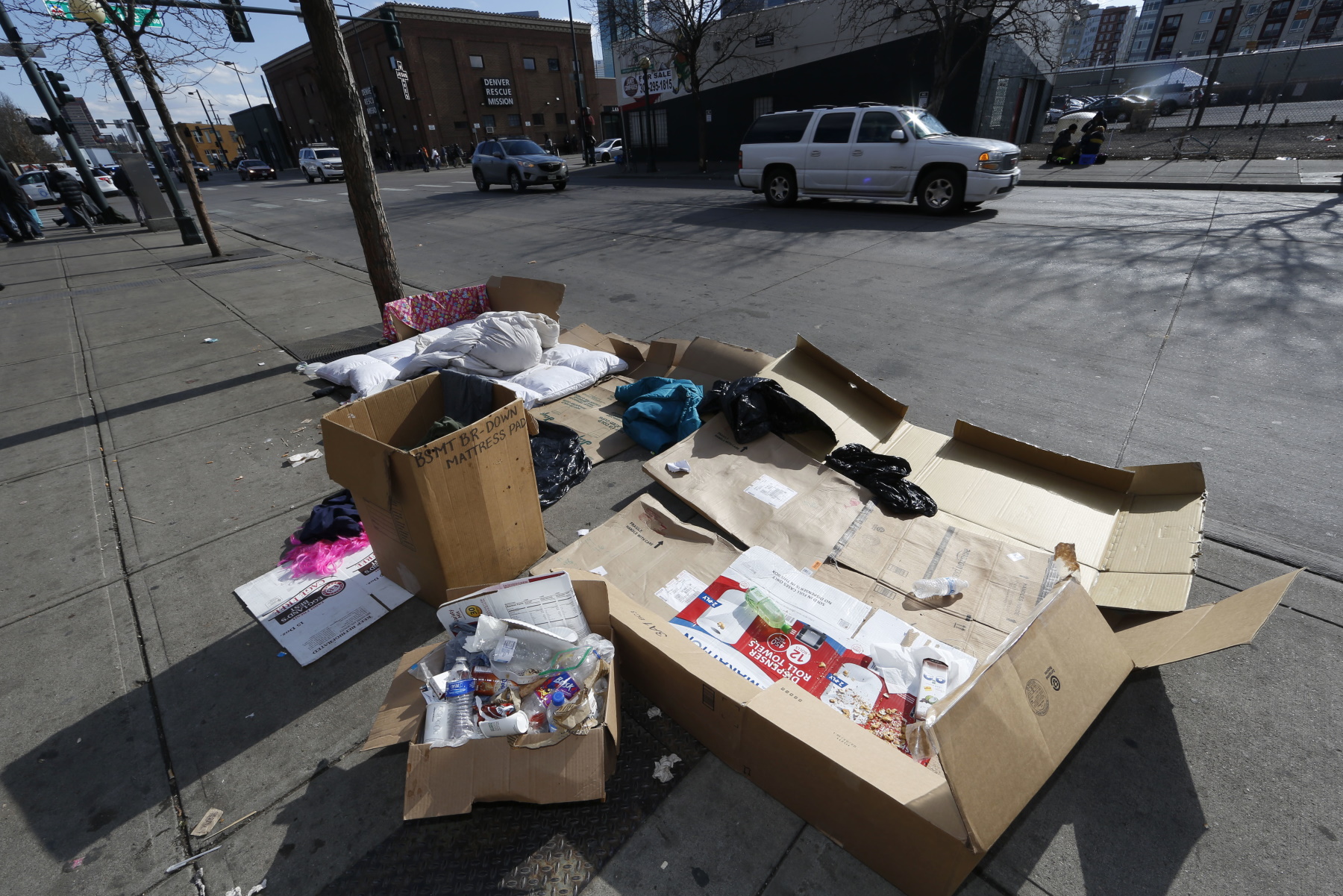In Atlanta, Homeless Service Providers Prepare For Coronavirus Spread

Traffic passes by the belongings of homeless person in Denver in 2016. Those who are homeless are vulnerable to the respiratory illness for several reasons, Dr. Mark Swancutt said in Atlanta. If they stay in a shelter, then they’re in a confined space with other people. If they sleep outside, they face a different problem. They likely have little access to soap and water — the basics for washing hands.
David Zalubowski / Associated Press file
The number of cases tied to the new coronavirus continues to grow in Georgia. The spread of the illness creates a unique threat for the state’s residents who don’t have a home.
Dr. Mark Swancutt with the Georgia Department of Public Health told a group of Atlanta homeless service providers Tuesday that they should expect to be busy.
“People who already suffer from some sort of disparities are probably going to be affected more than others,” Swancutt said.
Those who are homeless are vulnerable to the respiratory illness for several reasons, he said. If they stay in a shelter, then they’re in a confined space with other people.
“Depending on the shelter, there may not be all that much air movement going through so they tend to breathe each other’s air,” Swancutt said.
If they sleep outside, they face a different problem. They likely have little access to soap and water — the basics for washing hands.
Then, while the virus could spread more easily among the homeless, Swancutt said it could also be more harmful. People may have smoking habits or other underlying issues that compromise their health.
The coronavirus has service providers reconsidering how they do things, according to Cathryn Marchman, executive director of Partners for Home, which leads the city’s homeless efforts.
During the briefing Tuesday, she floated the idea of bringing hand sanitizer during outreach to people living on the street. Shelters, she said, also could change their bed setup.
“Just putting protocols in place so that people are not in direct face-to-face contact with each other, especially in sleeping environments,” Marchman said.
At this point, she said the answer is not to stop housing people. Marchman has heard that one shelter is already turning away new clients.
Atlanta’s recent history may make homeless service providers here more prepared than elsewhere.
In 2014, shelters had to fight a deadly strain of tuberculosis — another respiratory illness. Stopping that outbreak required them to follow certain practices.
“Our service providers already know those protocols,” Marchman said. “And in general, those protocols are already, you know, have long been in place and are being practiced regularly.”
Now, the team who has worked on tuberculosis efforts is adapting those procedures to the new coronavirus, she said.








